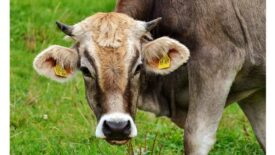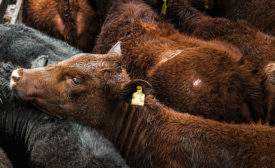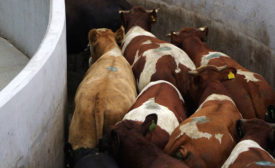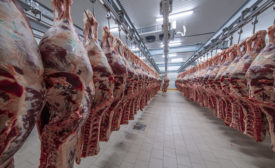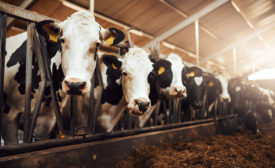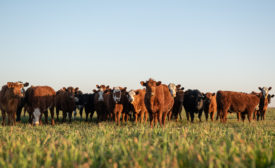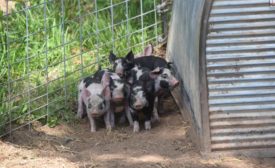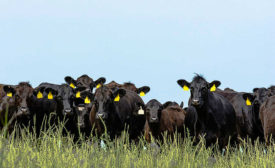Home » Keywords: » humane handling
Items Tagged with 'humane handling'
ARTICLES
Independent Thoughts
Training is important in preventing events that could result in enforcement actions.
Read More
Handlers need proper methods, tools and placement
Dr. Kurt Vogel shares his insights on how to ensure the humane handling of livestock.
Read More
Teachable moments in humane animal handling
Lessons from the 62 humane handling enforcement actions posted to the USDA’s Food Safety and Inspection Services website in 2021.
Read More
Humane handling is critical for small processors
Enforcement actions for mis-stunning or mistreatment are avoidable with proper equipment and proper training.
Read More
Processing Tech
De-stressing slaughter
Low-stress handling is key to humane slaughter and stunning practices.
Read More
State of the Industry 2019 | Animal Welfare
State of Animal Welfare 2019
Get back to the basics
Read More
Get our new eMagazine delivered to your inbox every month.
Stay in the know with The National Provisioner's comprehensive coverage of the meat and poultry processing industry.
SUBSCRIBE TODAY!Copyright ©2024. All Rights Reserved BNP Media.
Design, CMS, Hosting & Web Development :: ePublishing
